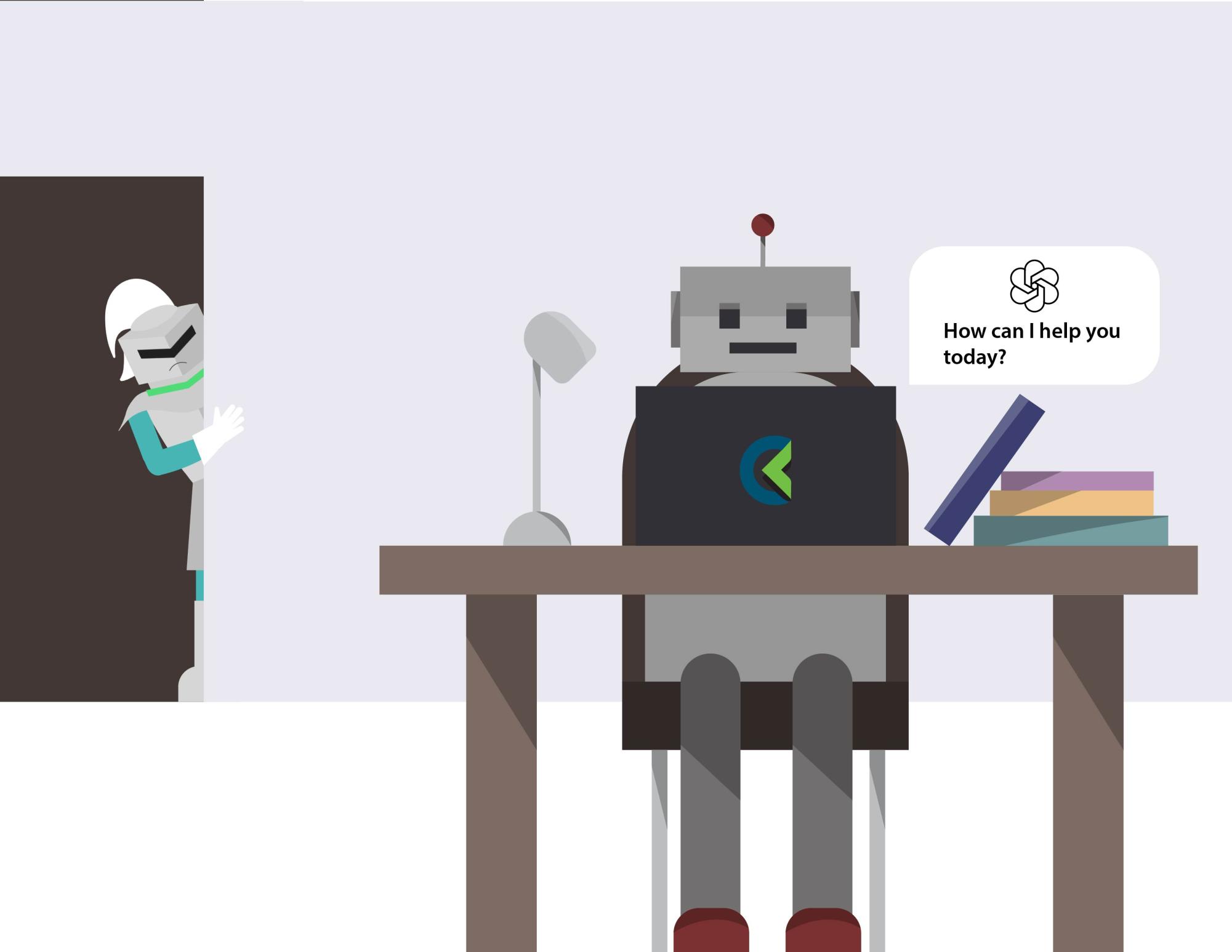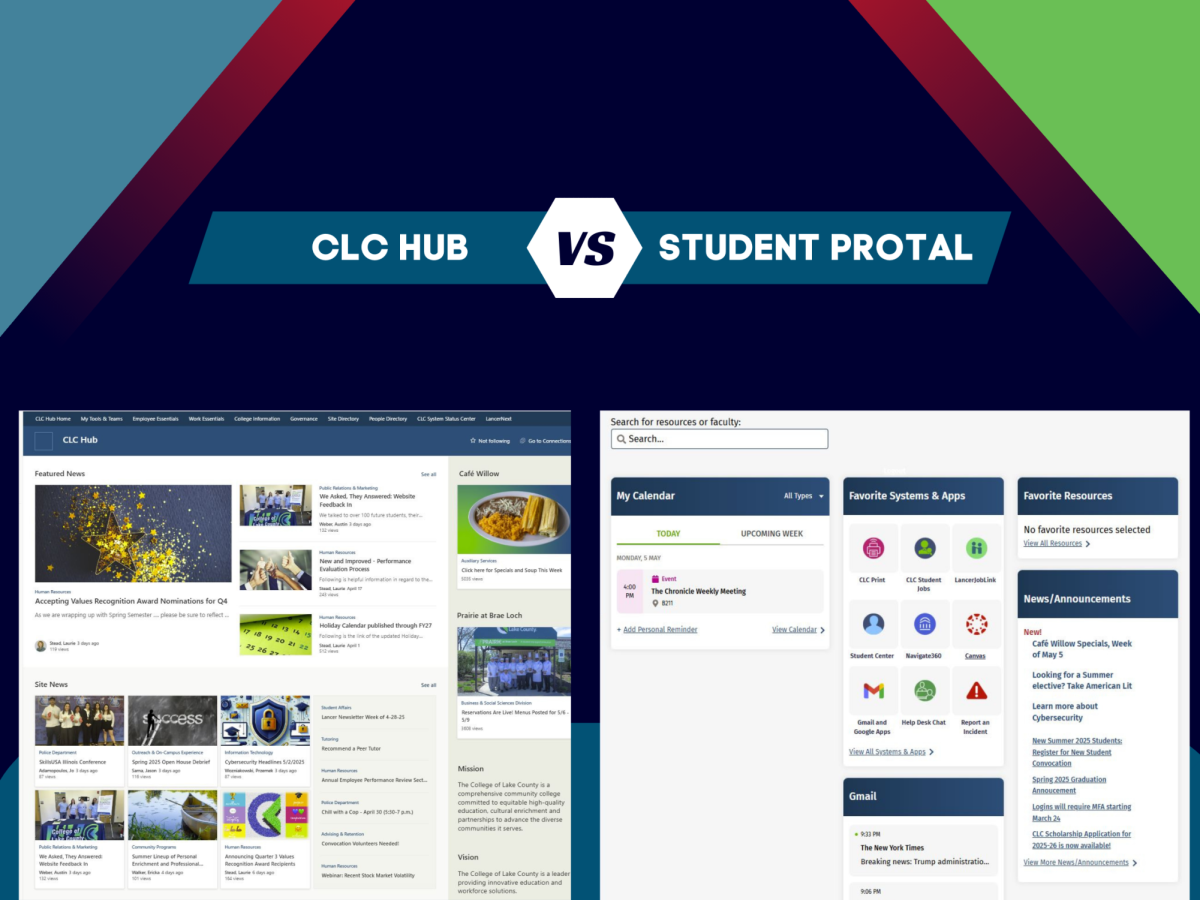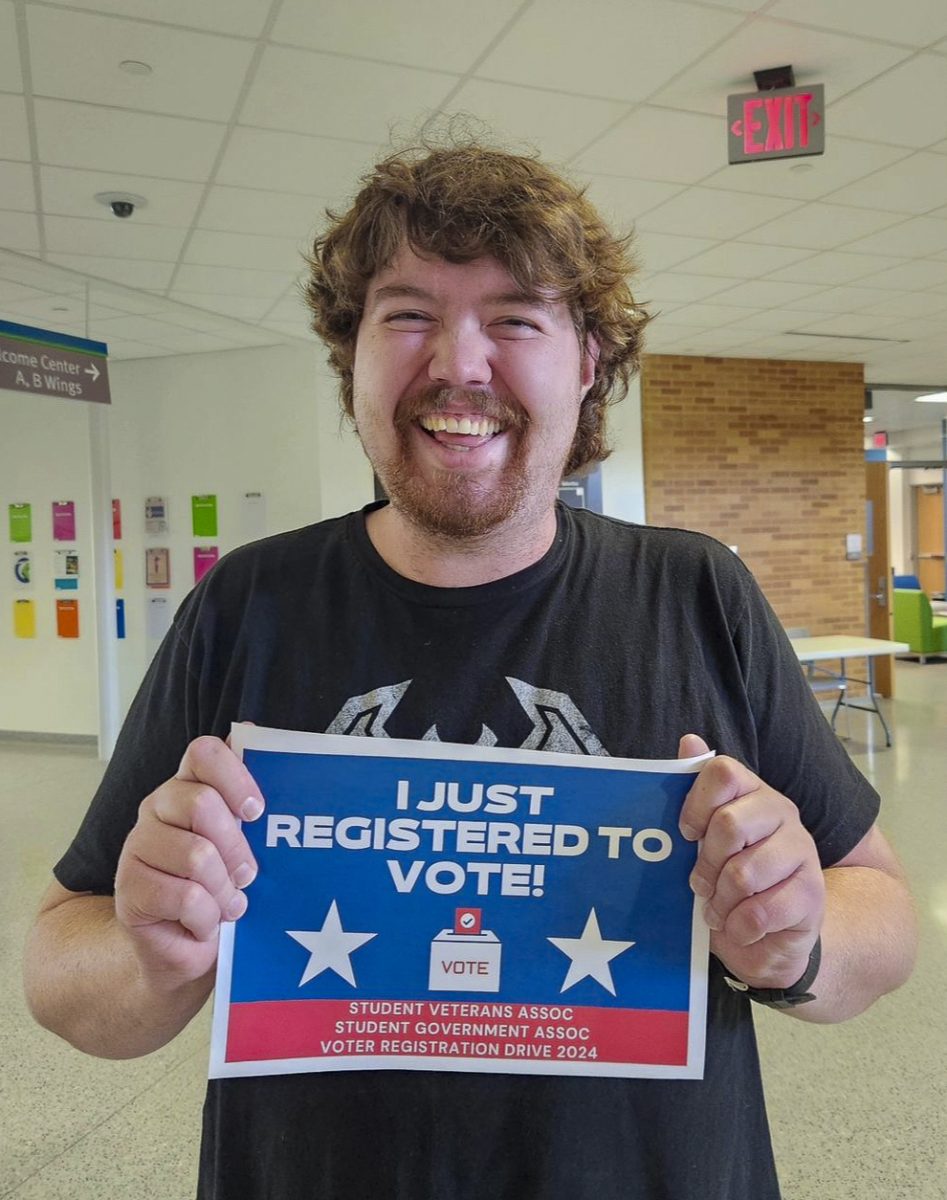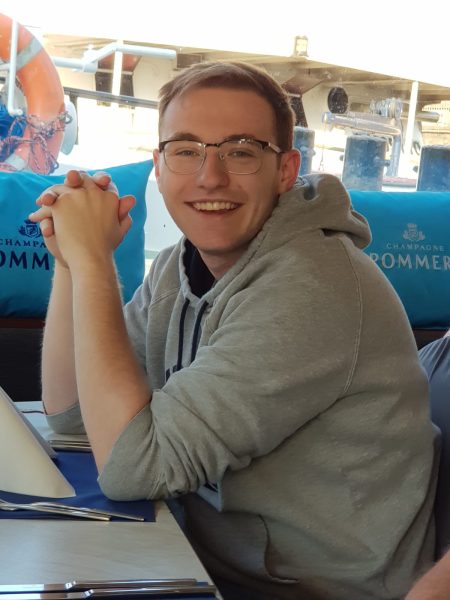My first introduction to the concept of AI, or artificial intelligence, was a science fiction book written by Philip. K. Dick called Do Androids Dream of Electric Sheep? It tells the story of a bounty hunter named Rick Deckard as he scours the streets of a post-apocalyptic San Francisco looking for rouge AIs, or as he calls them, Andys, who have deviated from their original tasks for money.
Throughout the story, one message is repeated: Do Androids have souls? This question is satisfyingly answered in the book, but I won’t spoil it. It’s a good read, and for anyone who loves sci-fi and hasn’t read it, I recommend you do.
However, the College of Lake County (CLC) and many other universities now ask a similar question about AI’s introduction and rapid development. Some of the main concerns are how academic and creative communities will be affected by the developing modern technology of AI. To answer this question, I interviewed Scot Rial, Director of Educational Technology here at CLC, and Laura Otto, an English professor at CLC.

One fact was spoken about in both interviews: AI has been around longer than some people think. For example, Grammarly is a common software to make sure people have clear and concise grammar; this type of software is built on AI, but it is unseen. Instead, it is in the background, helping the software catch spelling mistakes and other problems.
Now, the issue has evolved to how students best utilize AI for the benefit of their education and careers, a subject that has already been brought up within the walls of CLC.
According to Rial, “It’s been a major impact with AI, and something that has not gone unnoticed by faculty, by students, and by educators in general, because it is so powerful. I think if you can provide students with directions on how to use AI as a part of their learning process, it’s going to be even better.”
The new usage of AI may be beneficial, but along with it also comes implementation and how educators in the future will teach the next generation.
According to Professor Otto, “it’s going to push us to assign more creative work and be more deliberate.”
Luckily, misuse of this tool can still be detected due to the lack of a writer’s voice, a term used to describe how people write and their methods of writing. It is this voice that is key to any paper or project. Professors, because of this, can spot when a student uses AI to write a paper.
“So far, what I found in the assignments that were generated by AI is that they lacked the things that I wanted in good writing. They lacked a very distinct voice,” Otto said.
AI is undoubtedly a valuable tool, and with the proper application, it will help in the future. Although change creates ripple effects throughout the greater world, some people hit hardest by this change are the creatives, technical writers, and others whose livelihoods are being replaced by AI’s addition.
This concern should be addressed as the device’s usage becomes more engrained in how people work and live their lives. One of the major examples currently expressing these concerns is the Writers Guild of America’s strike.
Rial brought out these concerns and said, “Why do you think that actors’ and writers’ strikes took so long to settle? They were very concerned with the future of creativity, and I can understand that.”
Applications have sprung up to counter AI’s growth in the form of AI checkers, a tool already utilized by CLC to help scan for AI-created material. Tools like this keep students and writers’ assignments and work alike honest and AI-free.
Rial said, “It is not anywhere near a hundred percent; it’s just not that great at doing that because it’s so new.”
AI’s overexaggerated threat to industries and academia is partially pushed by the media. Searching for the topic on the internet shows this, with one side touting AI’s benefits and great achievements. While the other spells doom the world as we know it.
These conflicting ideas lead to a skewed viewpoint within the public consciousness, leading to a misinformed populace on what is truly happening.
Rial touched on this issue and said, “The only message they are getting is not the major media message, which tends to be kind of slanted. I try to keep up with articles about AI, and you can’t keep up.”
To combat this, CLC hosted events on the subject. Rial said, “We held a symposium in the summer, where we had some experts come in and speak to faculty about the role AI is playing.”
This is not the first time technology, especially new technology, has been seen as the enemy or an unknown factor. Throughout history, people have gone through this fear of the unknown, and it’s only natural. Now, it is a matter of how we as a society use it—something that only we can figure out.
Rial put it the best: “When I was young and you did math, you weren’t allowed to use a calculator at all. Now my children are in sixth grade, and I have to buy them a hundred-dollar calculator. It’s still a calculator, but we’ve found a way to use that tool in support of what’s being learned versus their cheating with it.”
We have calculators in every facet of our lives. I have it on my phone, and students at CLC have it in their backpacks. Calculators are one example. The computer, TV, and so on have all led to advancements in the world, some of them good and bad. We have gotten to a point where these devices are ingrained into society, and some of the technology is becoming integral to the people who keep society running.
Everyone must really ask: Where do we go, and how do we navigate the road ahead? I hope the question’s answer leads us out of the sci-fi horror stories that authors have written for decades. For others, that is up to them to decide, but hopefully, all of them will lead to a better path for new generations to come, whether that be in the department of academics for CLC or modern society as a whole.






